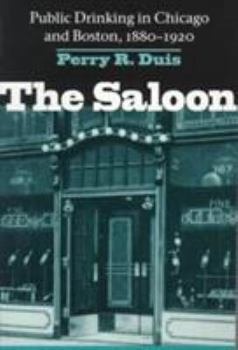Saloon: Public Drinking in Chicago and Boston, 1880-1920
Select Format
Select Condition 
Book Overview
This colorful and perceptive study presents persuasive evidence that the saloon, far from being a magnet for vice and crime, played an important role in working-class community life. Focusing on public drinking in "wide open" Chicago and tightly controlled Boston, Duis offers a provocative discussion of the saloon as a social institution and a locus of the struggle between middle-class notions of privacy and working-class uses of public space.
...
Format:Paperback
Language:English
ISBN:0252067819
ISBN13:9780252067815
Release Date:November 1998
Publisher:University of Illinois Press
Length:416 Pages
Weight:1.35 lbs.
Dimensions:1.2" x 6.0" x 8.9"
Customer Reviews
0 rating





